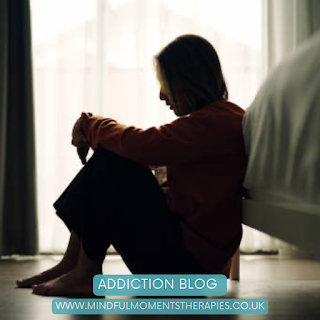What is a trauma response?
Trauma is a life experience that leaves individuals overwhelmed or helpless, leaving an impact on their mental, physical, and emotional well-being. Trauma can be caused by accidents, natural disasters, violence, sexual assault, childhood abuse, medical issues, war, life experiences, relationships and anything that causes stress and discord in the wellbeing of the mind.
Trauma responses can bring significant distress and disruption, affecting daily life and relationships with others. Experiencing trauma may result in disruption to several aspects of an individual's life, including psychological, cognitive, and behavioural functions.
Trauma response is the way an individual's body and brain react after experiencing traumatic events. Trauma responses encompass a broad range of emotions and behaviours, including physical, cognitive, and emotional reactions, which are often seen in individuals experiencing Post-Traumatic Stress Disorder (PTSD). The response may arise from the overwhelming sense of fear, helplessness, or horror that the individual experienced during the event. The severity of the response may significantly vary depending on the type of trauma, intensity, duration, and the availability of support.
Traumatic experiences initiate a chronic stress response that involves the nervous system and triggers physical and emotional changes in the body. These changes can have long-term impacts on an individual's physiology, emotions, and behaviours.
Trauma responses can have profound physical impacts on individuals. When individuals experience overwhelming stress, their bodies initiate a fight or flight response. This response results in increased adrenaline production, which can lead to shortness of breath, faster heart rates, and high blood pressure. Long-term stress can lead to symptoms such as chronic fatigue, headaches, gastrointestinal issues, and joint pains.
Trauma responses also cause emotional changes in individuals. The stress response releases hormones such as cortisol, which can lead to feelings of anxiety and irritability. The trauma response can lead to unhealthy coping mechanisms such as addiction: drug abuse, alcoholism. Patients may also experience feelings of guilt, shame, and worthlessness due to the stigma associated with trauma.
Trauma responses can also affect an individual's cognitive functions. It can lead to intrusive thoughts, flashbacks, memory loss, and difficulty concentrating. For instance, a person who has experienced sexual trauma may avoid situations that may trigger their memories of the traumatic event. This avoidance may cause them to become less social, leading to increased isolation and loneliness.
Often, the trauma response is due to the development of PTSD. Individuals who have experienced severe trauma may develop PTSD, which is a severe and life-altering condition. PTSD symptoms include flashbacks, nightmares, anxiety, mistrust of others, avoidance, and feeling distressed. The severity of PTSD can vary from person to person and can last for many years if not treated.
Emotional trauma involves the psychological effects of trauma, such as neglect or abandonment. The emotional response to trauma may be intense feelings of sadness, loneliness, and despair. Psychological trauma can arise from prolonged exposure to trauma, such as living in poverty, high-stress environments, or enduring long-term abuse. The psychological response may include depression, anxiety, and suicidal ideation.
Trauma responses can be overwhelming, particularly without appropriate support, which can lead to unhealthy coping mechanisms. Some of the unhealthy ways in which individuals cope with trauma responses include substance abuse, self-harm, and other maladaptive behaviours such as isolation and emotional avoidance.
Therapy can help individuals understand and cope with the traumatic experience. Cognitive Behavioural Therapy (CBT) can help the individual recognise and adjust negative thoughts and beliefs about themselves and the world, promoting a more positive outlook. Hypnotherapy, EFT, Breathwork, Reiki, and IEMT are some supportive techniques to help support recovery and the movement away from the trauma response in a healthy aspect
Regular exercise can have an overall positive effect on the body and mind, including reducing symptoms of stress, anxiety, and depression. Exercise can promote mindfulness, relaxation, and overall health.
Practicing mindfulness and meditation can help individuals cultivate acceptance and self-awareness. Mindfulness-based stress reduction (MBSR) can help individuals develop skills to manage stress and anxiety, reduce symptoms of depression, and improve overall well-being.
Support systems and social connections can help the individual overcome the traumatic experience. Social support, be it from friends or family, can help reduce feelings of isolation, promote engagement, and provide a sense of security.
Trauma responses can have profound effects on the physical, cognitive, and emotional well-being of individuals. The effects of trauma can be far-reaching, leading to the development of symptoms such as depression, anxiety, and PTSD. Individuals need appropriate support systems and coping mechanisms to reduce the likelihood of developing negative psychological, physical, and emotional effects.
Treatment for Trauma responses, especially PTSD, Anxiety and depression , should be tailored to the individual, and incorporate all the necessary elements mentioned. By increasing awareness of Trauma response, we can help reduce the stigma associated with it and promote a more accepting and supportive environment for individuals affected by trauma.
Living with trauma is exhaustive and demanding, taking energy from aspects that should be enjoyable and fun. Everyone deserves to find ways to release trauma in a healthy and healing way.
If you feel you would like support, and you feel therapy may be the answer. I offer 15 minute free insight calls, for you to have the chance to discover how therapy might support you. Visit my website for more information.
www.mindfulmomentstherapies.co.uk
Or email
enquiries@ mindfulmomentstherapies.co.uk
Call today for a new tomorrow.




Comments
Post a Comment